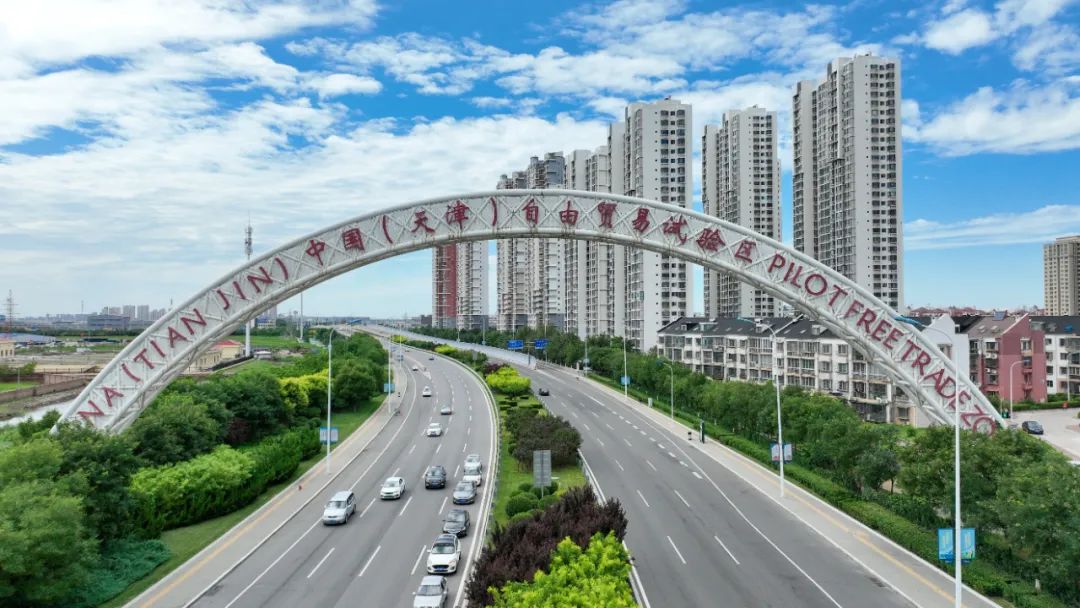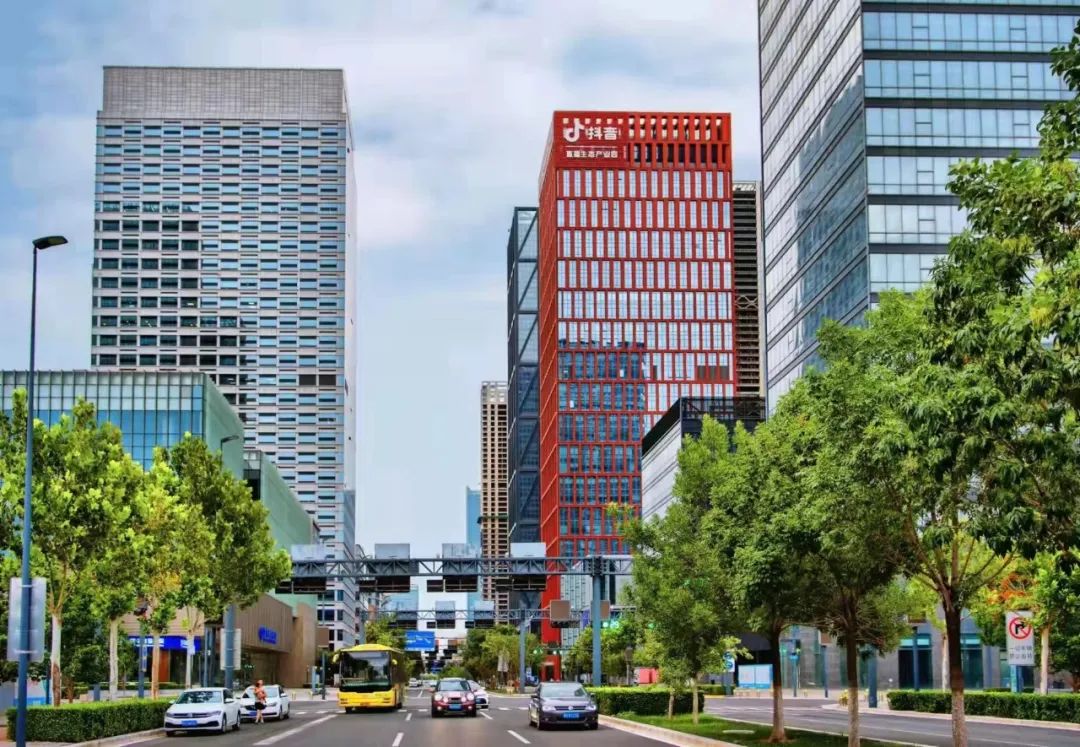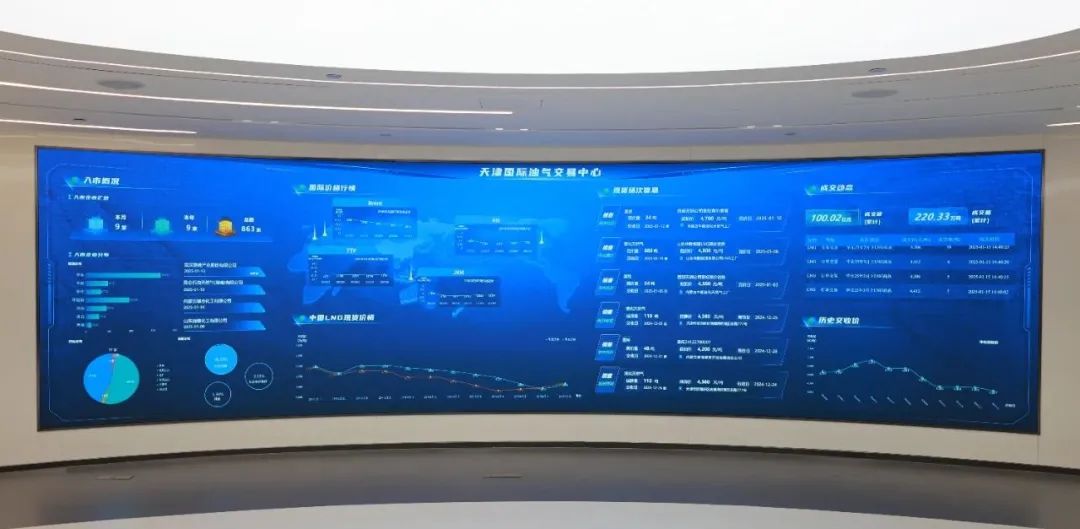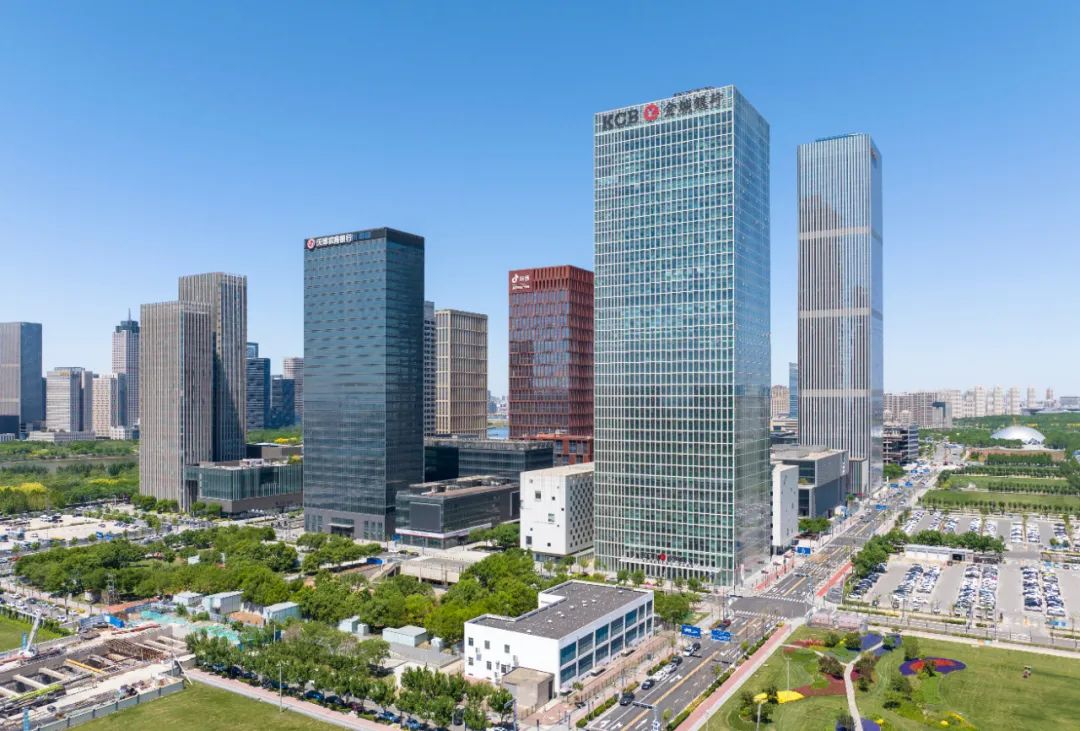10th Anniversary of Tianjin Pilot FTZ Central Business District (CBD): Empowering High-quality Development with Institutional Innovation

April 21, 2025, marked the 10th anniversary of the establishment of China (Tianjin) Pilot Free Trade Zone (FTZ), the first of its kind in Northern China. As one of its three core functional zones, the Central Business District has consistently adhered to its mission of “pioneering institutional innovations for the nation,” achieving remarkable breakthroughs through proactive reform,thereby delivering an impressive performance report.

This area also serves as one of China’s inaugural National-level Innovation and Entrepreneurship Demonstration Bases, a pilot zone for industry-finance integration, and a flagship hub for demonstration zones of financial innovation operations. Over the past decade, the Central Business District has driven continuous institutional innovation, generating over 110 institutional innovations, with 13 pioneering models replicated nationwide, positioning it as a high-yield reform laboratory within China’s FTZ network. The district has pioneered multiple national “firsts”: introducing China’s initial batch of foreign-invested private securities fund management institutions; launching China’s first factoring company bond; executing the inaugural cross-border RMB international factoring transaction; creating the “One License Per Enterprise” administrative service model to streamline approvals; implementing the “dual-collateral registration”risk control model in the financial sector integrating the PBOC Credit Information System and Emissions Trading Registry System to resolve green finance collateral registration challenges; and advancing element-based adjudication for financial cases, reducing average case processing time by 22.8 days. These groundbreaking initiatives have provided invaluable references for the development of free trade zones across China.

Institutional dividends catalyzed economic momentum. Currently hosting over 35,000 market entities across finance, platform economy, smart logistics, digital creativity, healthcare, and professional services, the CBD Area has emerged as a vital hub for financial services and emerging economic ecosystems in Northern China.

As a window and testing ground for China’s reform and opening-up, the Central Business District of Tianjin Pilot Free Trade Zone (FTZ) proactively aligns with international economic and trade rules, forging an array of exemplary Tianjin Models with global benchmarking significance.
In the biopharmaceutical sector, Tianjin FTZ spearheaded the implementation of a Biopharma White List mechanism citywide, successfully establishing green channels for biopharmaceutical R&D material imports. To date, three batches of enterprises have been included in the White List. The White List system resolved critical logistical bottlenecks, further enhancing the competitiveness of domestic companies in R&D services. Moreover, it also facilitates product benchmarking against international standards and expands service coverage,” stated the operations director of WuXi AppTec, a TEDA-based enterprise.

In stress-testing alignment with CPTPP rules, the CBD leveraged FTZ’s pioneering policies to achieve groundbreaking reforms: enabling cross-border RMB dividend remittances of 6.65 billion yuan with single-day approvals; instituting zero-delay capital transfer protocols for foreign financial institutions; securing national import pilot status for four remanufactured automotive components (diesel engines, transmissions, etc.) and making breakthroughs in import restrictions on remanufactured goods; completing China’s first offline transaction of the EU’s CBAM-compliant data products at Tianjin Emissions Exchange, and pioneering a new model of industrial chain integration and synergistic innovation of carbon-data elements. These groundbreaking initiatives have contributed Tianjin’s insights to China’s FTZs in engaging with international rules.
To accelerate the realization of RCEP policy dividends, three strategic platforms were inaugurated in Tianjin FTZ in early 2024, namely, the RCEP Enterprise Service Center, the Belt and Road International Commercial Legal Service (TEDA) Workstation, and the National Overseas Intellectual Property Dispute Assistance (TEDA) Workstation. These facilities enable enterprises to handle global trade compliance and access comprehensive policy support within the district ecosystem.

To achieve high-quality development, the CBD focused on key elements like data, talents, and energy. With innovation holding the key to the smooth circulation of these elements, it injects robust momentum into economic growth.
Breakthroughs have been continuously made in data governance. In collaboration with the Tianjin Free Trade Zone Commission, the CBD has issued China’s first Data Classification and Hierarchical Management Standards and a Negative List for Cross-Border Data Transfer, enabling orderly cross-border flows of critical enterprise data.
The talent factor market has been vigorously revitalized. The Tianjin Free Trade Zone has optimized institutional mechanisms to facilitate international talent mobility. As the process of permanent residency application for high-level foreign experts was streamlined thanks to the FTZ policies, 85% of foreign faculty at the Tianjin Juilliard School have obtained permanent residence ID cards. Recognition of overseas professional qualifications now covers 27 items across 7 fields. Leveraging the Tianjin (Binhai) Overseas Talent Offshore Innovation & Entrepreneurship Base and the China Tianjin Human Resources Service Industrial Park, the CBD has established a full-chain talent service system encompassing “introduction-cultivation-service,” achieving precise alignment with global talent resources.
Remarkable results have also been achieved in energy factor innovation. The CBD has supported the establishment of the Tianjin International Oil & Gas Trading Center and pioneered China’s first LNG group procurement trading model. It launched the nation’s inaugural LNG warehouse receipt trading and delivery services, creating an integrated trading framework combining “production capacity pre-sale + LNG Order Pass + warehouse receipt trading + spot listing/unidirectional bidding,” effectively reducing energy trade costs. By January 2025, the trading center’s spot transaction volume had surpassed 10 billion yuan cumulatively, with 863 registered traders on the platform. The average daily transaction value exceeded 218 million yuan in January, solidifying its position as the largest LNG resource trading hub in the Beijing-Tianjin-Hebei region.


Today, the CBD has established a fully functional and vibrant financial ecosystem. The district hosts nearly 3,000 financial and quasi-financial institutions, with assets under management exceeding 3.5 trillion yuan. Among these, 158 are licensed financial institutions and their branches, covering all 25 categories of full financial licenses. Factoring companies in the district hold total assets exceeding 130 billion yuan, accounting for one-fifth of the national total, with half of China’s central state-owned enterprise-backed factoring firms headquartered here.
Financial innovation has benefited numerous enterprises. Take Lionbridge Group, a CBD-based enterprise, as an example. With policy support, the Group has been integrated into the People’s Bank of China’s credit reporting system. Since 2020, it has secured over 1.8 billion yuan in foreign credit lines. These funds, after cross-border settlement, have been deployed to expand financial leasing operations. Leveraging “finance + technology” solutions, the company creates precise profiles for drivers, helping them and fleet operators secure vehicle financing, effectively lowering purchase barriers. To date, it has provided financial support for over 8,000 vehicles.
The “Commercial Factoring Capital of China” has significantly empowered the real economy. CBD-based factoring firms have issued over 100 billion yuan in asset-backed securities (ABS) and corporate bonds, significantly reducing financing costs. Through tech-driven models such as the “digital RMB (e-CNY) + loan disbursement + factoring” supply chain finance scenario, core enterprises’ creditworthiness is extended to small and medium-sized businesses (SMEs) across industrial chains, enabling them to access low-cost financing. Cumulative transaction volumes exceed 3 trillion yuan. The district has developed comprehensive financial service clusters covering enterprise rights confirmation, scenario-based finance, digital finance, capital markets, fintech, and corporate services, delivering comprehensive and multidimensional supply chain financial solutions for every operational scenario.

The real economy is the foundation of finance. Over the years, the Central Business District has deepened integration of financial services with industrial and supply chains, seizing opportunities in digital-real economy convergence. It has pioneered specialized supply chain finance models to combine finance with automotive, energy, pharmaceuticals, and smart manufacturing respectively, attracting over 80 central state-owned enterprises to establish 400+ innovative financial entities. With total investments exceeding 300 billion yuan, these initiatives powerfully drive the growth of the real economy.
Financial opening-up policies, exemplified by the Free Trade Account (FT Account), stand as another innovative measure. Sun Yong, Deputy President of Bank of China Tianjin Branch, stated that FT accounts integrate domestic and foreign currencies, allowing users to flexibly choose onshore/offshore exchange rates and settlement timing. Cumulative settlement volume through these accounts has surpassed 1.15 trillion yuan.

The Tianjin Pilot FTZ Central Business District has injected vigorous momentum into regional economic development through a series of pioneering achievements. As the CBD marks its 10th anniversary, it will continue to leverage institutional innovation as its engine, anchor high-level openness, deepen international cooperation, and fully commit to building a new frontier for an open economy.













 津公网安备 12019002000128号
津公网安备 12019002000128号

